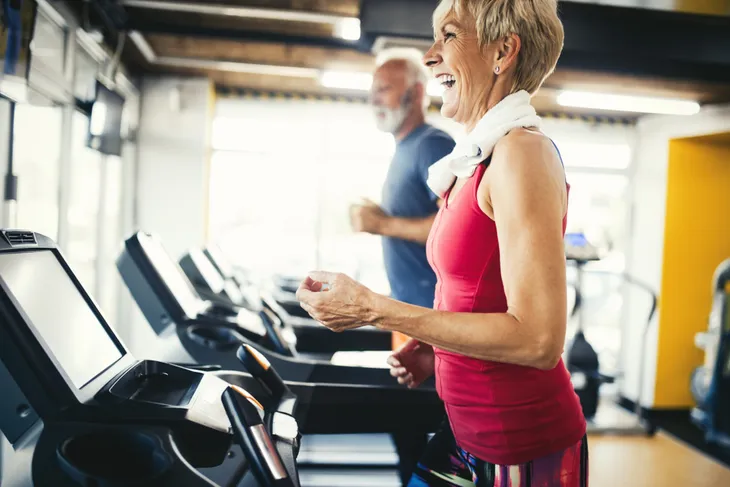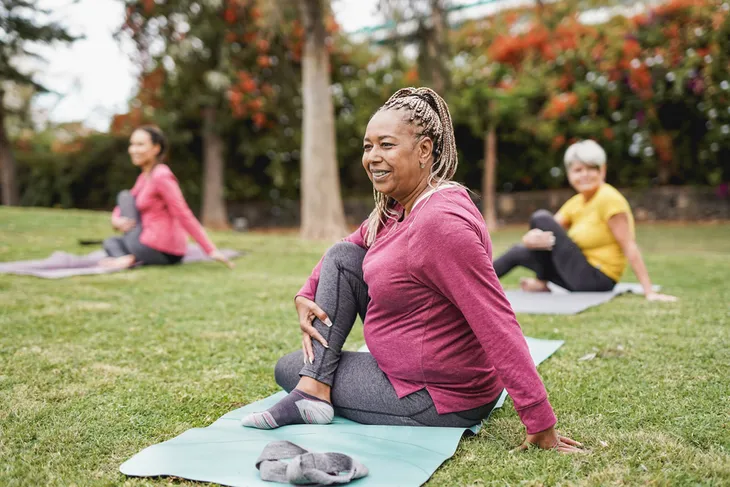As an aesthetic society, we often demonise body fat and stigmatise people with lots of it. There’s often an assumption that people carrying excess weight don’t exercise and must be unhealthy.
But that’s not true: you can be fat and fit. In fact, as we age, low levels of fitness can be more harmful to our health than high amounts of fat.
For those considering starting exercise, try looking beyond weight loss for motivation. No matter how much you weigh, there are always benefits to exercise.
Exercise actually does a pretty poor job of getting us to expend enough excess energy to lose weight. This is partly due to a compensatory effect of our appetite, which increases after we exercise.
Exercise changes our body composition – how much fat we have as a ratio to how much lean (muscle) tissue we have – but this doesn’t always cause big changes on the scales.
Here are just five ways exercise improves our health, no matter how much we weigh.
1. Better cardiorespiratory fitness
Cardiorespiratory fitness is a measure of how far and hard you can run without needing to stop, or how many stairs you can climb without being out of breath. Running for longer, or climbing more stairs, means you have a higher absolute cardiorespiratory fitness which cannot be improved with weight loss alone.
Having a high body mass index (BMI) may reduce the absolute intensity you can exercise but it doesn’t mean it is less effective.
You may be able to jog between every third lamppost, for example, but not run consistently for 1 km. While it may seem the periodic jogging is not as impressive, it’s all relative to your baseline and any exercise is better than none.
If you’re carrying a lot of excess weight, you might prefer non-weight bearing exercise such as swimming or cycling indoors to minimise stress on your joints – but this will depend on you and what you like doing. After all, you’re more likely to continue exercising if you enjoy it.
If you’re thinking “but I hate running/swimming/cycling/dancing and I’d rather lift weights”, then lift weights! Although lifting weights doesn’t have the same effects as cardio training, the benefits are still as important for mobility, joint function and maintaining muscle mass as we age.
2. Lowered risk of heart disease and stroke
Exercise reduces the risk of heart disease and stroke, even in those with a chronic disease such as diabetes, irrespective of body fatness.
Regular exercise helps lower blood pressure, improves delivery of blood throughout the body, and reduces inflammation, even in those with a high body mass index.
3. Reducing the ‘bad’ fat
Exercise improves our body’s ability to use energy. We store large amounts of energy as fat, which is quite hard to break down, as it costs a lot of oxygen compared to “cheaper” fuels for the body to use like glucose.
But when we exercise regularly, we increase our body’s ability to use fat as a fuel source as well as requiring more energy at rest.
This doesn’t necessarily mean more exercise equals more fat loss, but it does mean more fat turnover, and typically less fat stored in and around the organs (the “bad” visceral fat).
4. Mental health benefits
Research has consistently shown that people who exercise (regardless of body size and shape) have better mental health and lower levels of stress, depression and emotional problems.
It does this via blood flow to the brain, increased release of endorphins that make us feel happy, and by helping to moderate the brain’s response to stress.
Often, the hardest part is getting started with exercise or going to perform the exercise, but once you are moving the mental health benefits begin.
5. Preventing weight gain
While exercise may not help us lose a lot of weight on the scales, it’s a good way to keep weight off and prevent weight regain.
Regular exercise continues to encourage the body to use stored fuels and remodel tissues (such as muscle) to grow healthier and stronger.
But preventing weight regain is tough. People who have lost weight may need greater amounts of exercise to counteract the physiological drive to return to the heavier body weight.
If you need some extra help getting started or finding a routine that suits you, talk to your GP or consider seeing an accredited exercise physiologist.
Evelyn Parr, Research Fellow in Exercise Metabolism and Nutrition, Mary MacKillop Institute for Health Research, Australian Catholic University
![]()
This article is republished from The Conversation under a Creative Commons license. Read the original article.









